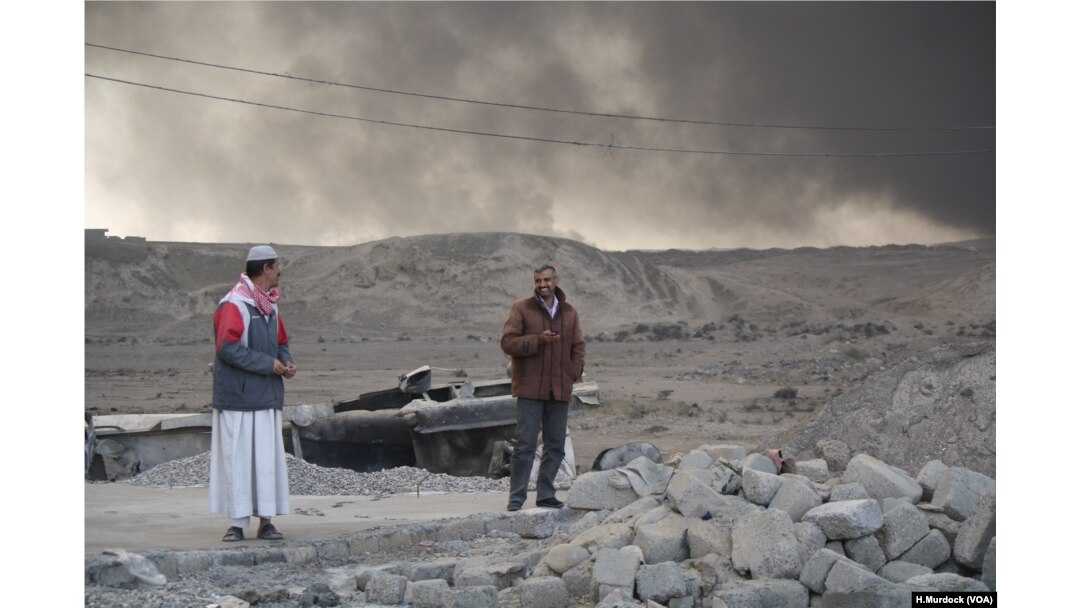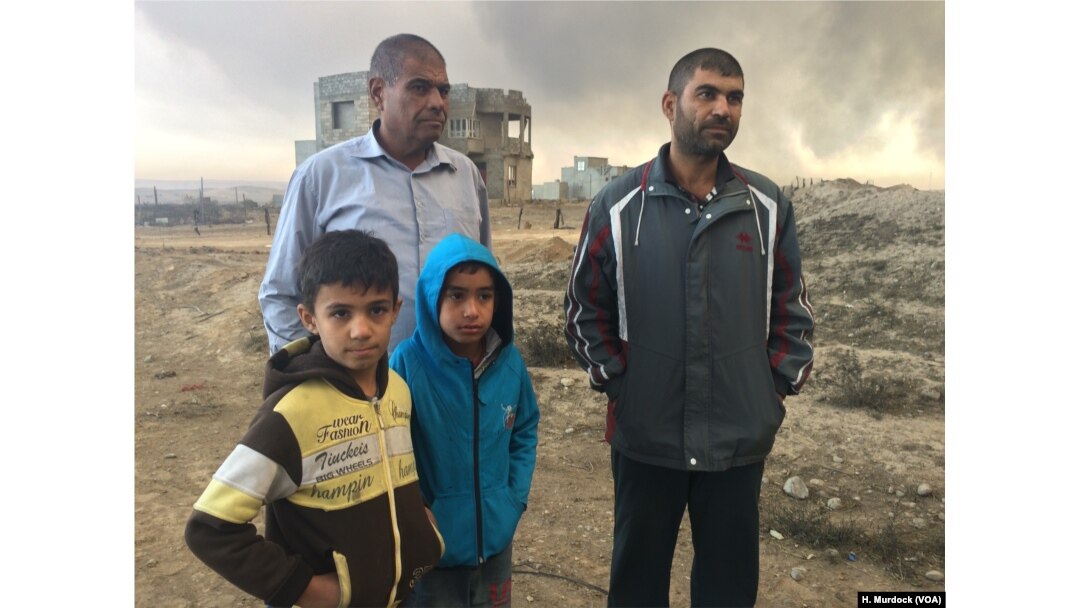Graffiti on a bullet-riddled building in this city reads “Mosul will be free” in Arabic as black smoke billows from the nearby oil fields set on fire by Islamic State militants.
As the frontlines of the battle against Islamic State move into Iraq’s second largest city, the surrounding areas are in tatters. Locals say IS may be gone, but residents are still in danger from the smoke.
“We are living in a fire,” says Ali Ahmed, who house is between two oil fires, each only a few hundred meters away. “There is no water, no food. Even our spit is dry and black.”

On the outskirts of Qayyarah, Iraq locals say oil fires left behind have raged almost unchecked for months, Nov. 5, 2016.
IS militants had set oil fields in this city on fire before they were forced out of the area two months ago. After they left, soldiers say timed bombs remained and when the bombs went off, the fires were reignited.
Some people say the fires were meant to hide IS from airstrikes. Others say the group is just bent on destruction. All agree it’s a crisis that is not being addressed.

"Even our spit is dry and black," says one father who's family did not leave the area for Islamic State or the fires. "Life here is finished," he added, in Qayyarah, Iraq, Nov. 5, 2016.
“They destroyed this well of oil three months ago by bombs,” says Mohammed, a Qayyarah resident as he stands on the rim of one of the fires. “This is hurting us by the smoke. It’s hurting out chests. It’s making a lot of people sick because this oil is burning.”
While this fire rages on freely, there is another burning oil well in view. Locals say it is technically being put out, but months have gone by with no change.
Mohammed says there is a company working to put out one fire, but progress is slow and other fires are not being attended to in Qayyarah, Iraq, Nov. 5, 2016.
In the meantime, families near the fires live in homes encased in smoke, which blocks the sun over entire villages and towns.
“The situation is very dangerous,” explains Hassan Ahmed, a Lieutenant in the Iraqi Army. “The children get up in the morning and their faces are soon black. Even the furniture is black.”
"Everything is poisonous," says 15-year-old Kazwan in Qayyarah, Iraq, Nov. 5, 2016.
Families say the defeat of Islamic State in their area was a great victory and a list of the names of those killed by the group hangs on a shop door in town.
But the devastation IS left behind has left many homes empty, and those remaining say they are barely surviving.
“Many houses were destroyed with mortars and bombs,” says Ahmed. “Life is finished here.”
Locals secure the area around the fire in conjunction with the Iraq Army, but can do nothing to put it out in Qayyarah, Iraq, Nov. 5, 2016.

